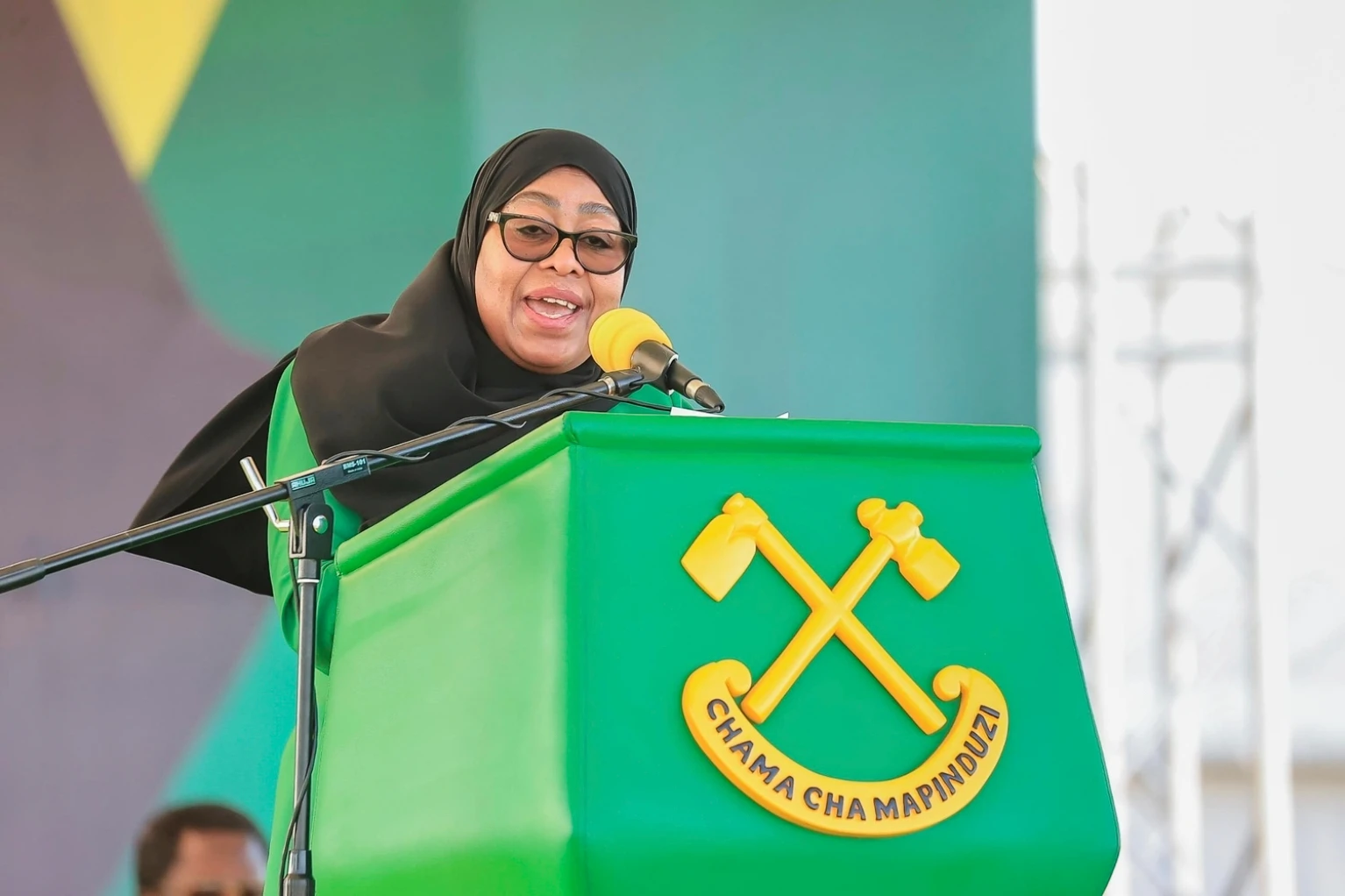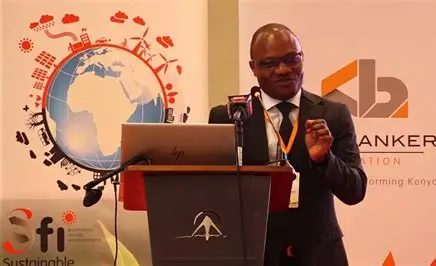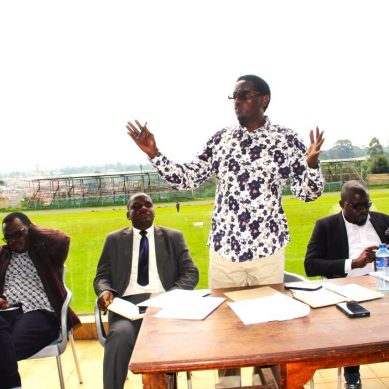
Ordinarily, some Rwandans believe Ubwenge is divine – but generations, they have never been able to explain the divinity. It does not mean knowledge, but a Rwandan tradition of stoutly guarded ‘secret’ lies, deceit, slander, malice, blackmail, twisting the truth and parading lies to cover up the truth, according to the late Prince Nyetera.
In the Italian secret society of Mafioso ubwenge is the equivalent of omerta. These are lies that have been given the cloak of truth and sometimes this version of truth is embellished with high-sounding reference to divine powers. Lies, though, have a cycle. There is always an end to lies and this ultimate stage of untruths – some colourfully coiffured – can be bloody as history has proved. Rwanda is a modern case in point.
Prince Nyetera, was a Rwandese royal. When he got converted to Christianity in Switzerland, he recanted ubwenge. He openly challenged the 1000-year secret tradition.
This annoyed all those who were hiding behind the tradition to lie; it’s owing to this tradition that the world was lied to about the genocide. Only few British journalists from BBC refused to accept the lies of the genocide.
Lies are the oil that runs politics and politics is by practice a fierce competition of lies.
One writer said, “No one has ever doubted that truth and politics are on rather bad terms with each other. Truthfulness has never been counted among the political virtues in the political realm anywhere in the world. Inherent to the intention to deceive and to lie is a mental phenomenon that is studied by both from a psychological and a philosophical perspective”.
It is almost impossible for modern politicians to tell the truth, the whole truth and nothing but the truth (Gaby Hinsliff, 2003). Getting the truth behind lying in politics can be extremely difficult for simple minds. Even sophisticated minds good at deciphering the truth in a complex world of lies and half truths frequently find themselves at a loss. Trading falsehoods and allegations of dishonesty is common among the politicians on either sides of the political curtain. Otherwise, often it is government politicians who spend a lot of time, energy and money trading lies, falsehoods and allegations of dishonesty to divinise themselves against these vices they are very good at.
“Politics should be regarded as less like an exercise in producing truthful statements and more like a poker game,’ said author Glen Newey, reader in politics at the University of Strathclyde cited by Hinsliff (2003). Glen Newey concluded that the drive towards an open and accountable modern democracy – forcing ministers to answer ever more exhaustively questions on issues they used to gloss over – creates a ‘culture of suspicion and makes it more likely that politicians will resort to evasion and misrepresentation and lies’. He adds: “When journalists or other parliamentary colleagues start to probe at that area which the government wants to keep secret, you are likely to be pushed further and further towards the territory of lying… Politicians need to be more honest about lying.”
Apparently, Newey adds: “Not only is lying ‘sometimes justifiable’ where there is a public interest, for instance where national security is at risk, but voters even have a ‘right to be lied to’ about things where they would rather not know what had happened, such as what was done during a war”.
MPs regularly complain that an unfair assumption that they are all liars is eroding public confidence in politics (Gaby Hinsliff, 2003). Citing psychologist, politicians who do lie are usually very good at it. They are the type who may be referred to as pathological liars. However, Wiseman, cited by Gaby Hinsliff (2003), says most (pathological liars) in the end get caught in their game because keeping a consistent yarn (of lies) together, if you are leading a complex life, which most politicians do, is pretty hard.
Closers home, my article raises similar concerns: Truth and lies in politics – do Uganda’s politicians ever value the truth?
If Ugandans have suffered anything adversely it is not guns or tear gas but falsehoods, half-truths and lies, especially in the executive, parliament and before, during and after elections. This suffering has gone on for a very long time and there seems to be no end to it. Currently we are being fed on lies as to who were the culprits in the acts of reigning chaos and violence during the North Kawempe Constituency during the by-election that saw the National Unity Platform winning their seat back.
It is easy to see who the victims will be after the by-election, in a political environment where some politicians believe they can never lose an election, or think that the attitudes of voters, increasingly young ones, have not changed over the decades.
My view is that so long as politicians that tick by falsehood, lies and half-truths predominate in our socio-political environment, the truth will have no space in politics, and for that matter in leadership and governance. The implications for the young generations will have dire consequences well in the future. The truth will continue to be an endangered species in the politics of Uganda. The victims of lies will continue to be criminalised and accused of treason.
To put Uganda on the right path, all Ugandans and their leaders must agree that Uganda belongs to all; not to a small group that believes that not does Uganda belong to them but also all people, all power, everything and the future. However, to agree to agree is not easy, because those in power regard those outside power that want to provide alternative leadership and governance as criminals.
Accordingly, all lies, falsehoods and half-truths can only perpetually and continually come from this group until some accident occurs and the group in power sees itself out of power.
Personally, I feel more worried about lying in public life that has consumated the political realm of Uganda wherein shame is no longer a valued trait. Even if there is a difference between white lies and real lies, our psychologists and sociologists must take it as an opportunity for them to study ‘The Hows and Whys of Lies’ in Uganda’s political realm.
Soon the young generation will not like people who tell them the truth all the time. That will be the end of clean leadership and clean governance in Uganda. It will be a fundamental change ushered in a country where ethics, morality, integrity and honesty were once highly valued. Clearly our leaders and governors are misleading or doing disservice to our country and the future generations of Ugandans politically for selfish ends.
Is it true that our politicians just can’t help lying?
For God and my country.
- A Tell report / By Oweyegha-Afunaduula / Environmental Historian and Conservationist Centre for Critical Thinking and Alternative Analysis (CCTAA), Seeta, Mukono, Uganda.
About the Centre for Critical Thinking and Alternative Analysis (CCTAA)
The CCTAA was innovated by Hyuha Mukwanason, Oweyegha-Afunaduula and Mahir Balunywa in 2019 to the rising decline in the capacity of graduates in Uganda and beyond to engage in critical thinking and reason coherently besides excellence in academics and academic production. The three scholars were convinced that after academic achievement the world outside the ivory tower needed graduates that can think critically and reason coherently towards making society and the environment better for human gratification. They reasoned between themselves and reached the conclusion that disciplinary education did not only narrow the thinking and reasoning of those exposed to it but restricted the opportunity to excel in critical thinking and reasoning, which are the ultimate aim of education. They were dismayed by the truism that the products of disciplinary education find it difficult to tick outside the boundaries of their disciplines; that when they provide solutions to problems that do not recognise the artificial boundaries between knowledges, their solutions become the new problems. They decided that the answer was a new and different medium of learning.
Further reading
Derrida, J. (1997), History of the Lie: Prolegomena, in: Graduate Faculty Philosophy Journal, 19 (2/1): p. 129- 61.
Fallis, D. (2009), What is Lying? In: Journal of Philosophy, 106: p. 29-56.
Gaby Hinsliff (2003). Truth is, politicians just can’t help lying. The Guardian, 18 May 2003).
Mahon, J.E., The Definition of Lying and Deception, in: The Stanford Encyclopedia of Philosophy (Winter 2016 Edition), edited by N. Zalta, URL: https://plato.stanford.edu/archives/win2016/entries/lying-definition/.
Saul, J. (2012), Lying, Misleading, and What Is Said, Oxford: Oxford University Press.
Sorensen, R. (2007), Bald-Faced Lies! Lying Without the Intent to Deceive, in: Pacific Philosophical Quarterly, 88: p. 251-64.
Stokke, A. (2013). Lying, Deceiving, and Misleading, in: Philosophy Compass, 8: p. 348-59.
Williams, B (2002), Truth and Truthfulness: An Essay in Genealogy, Princeton: Princeton University Press.








